The Clean Energy Transition as a Long Drawn Process


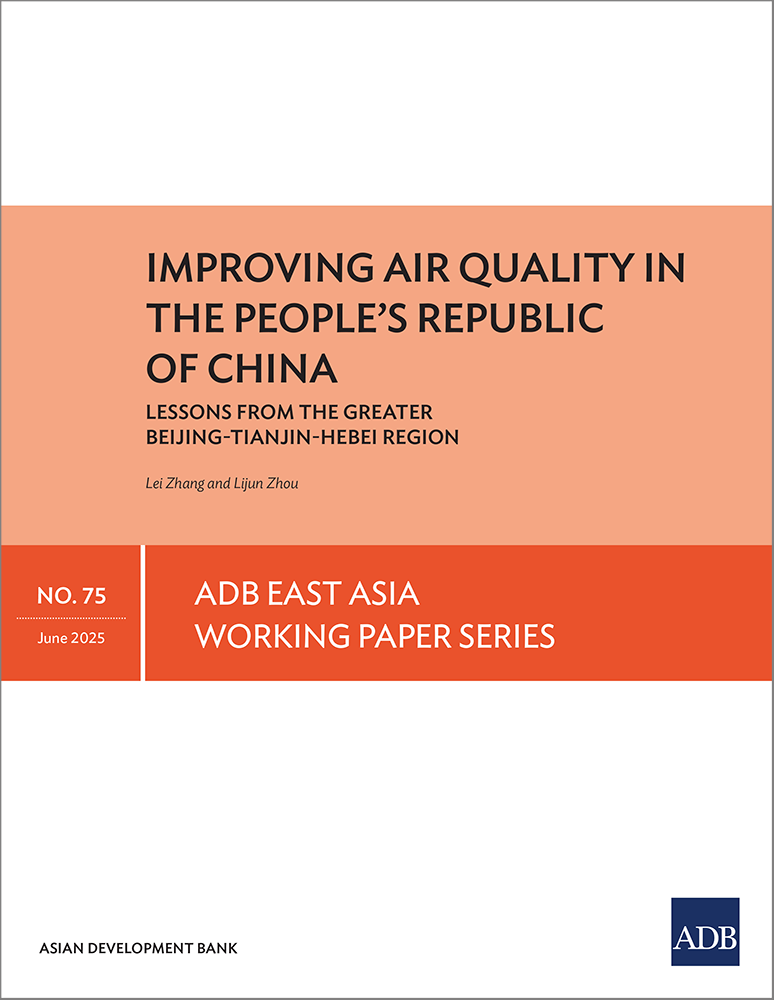
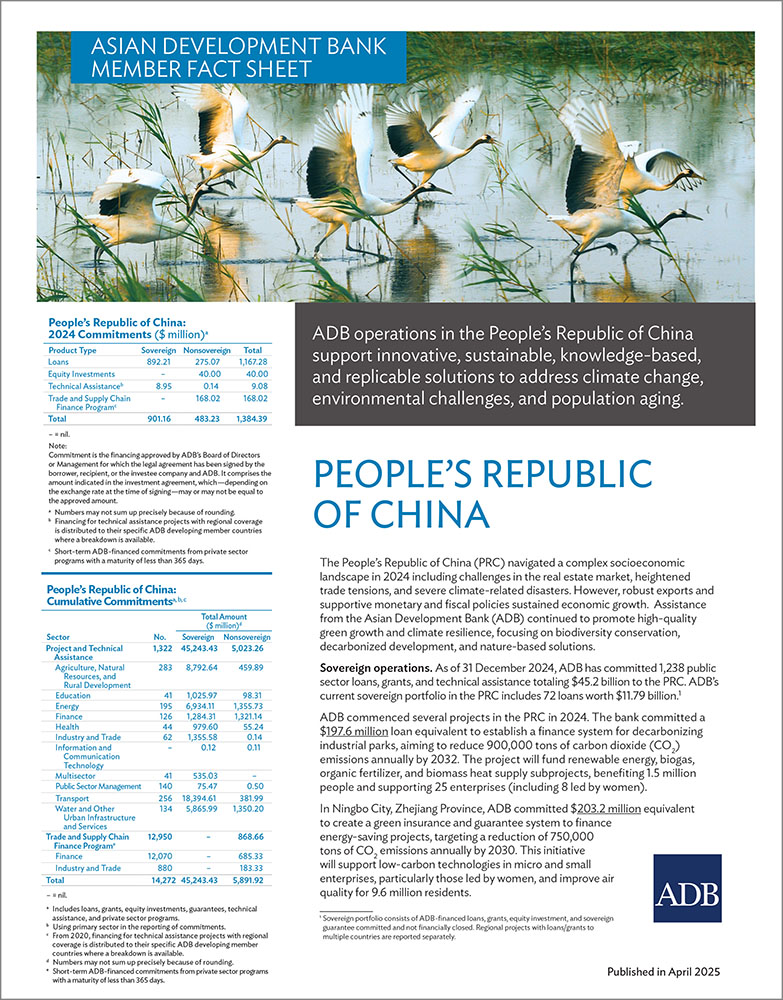
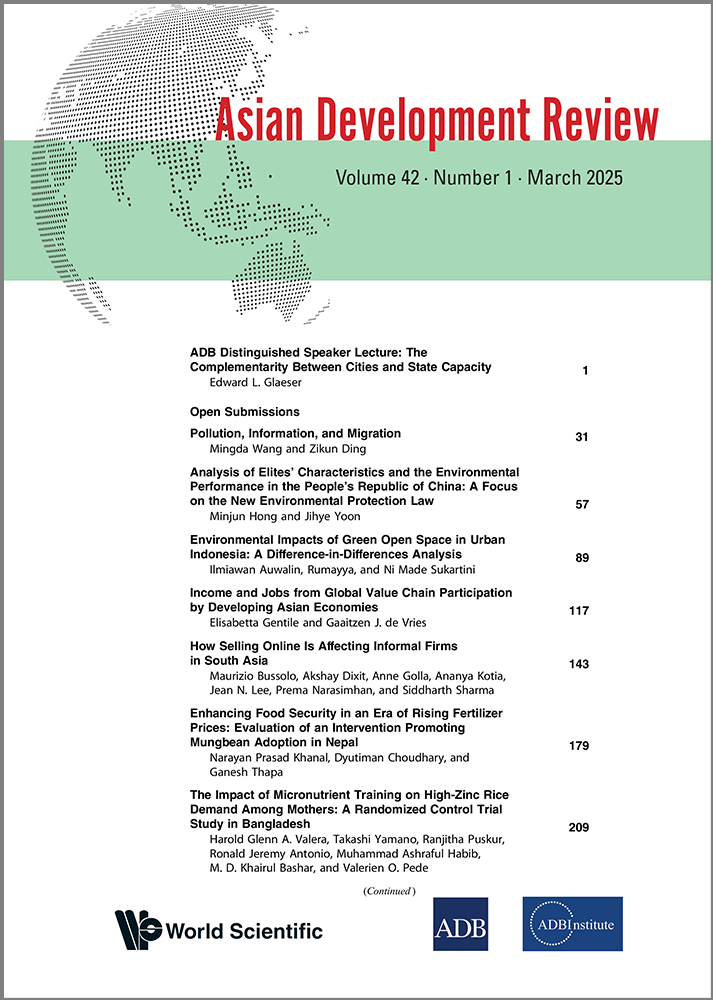
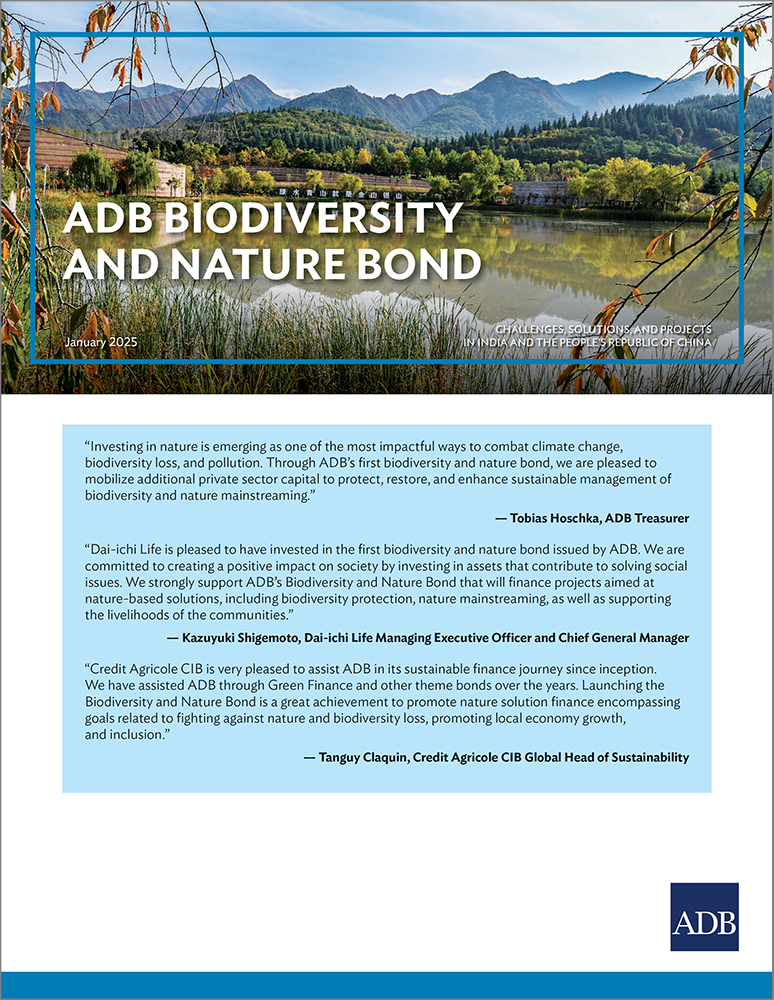
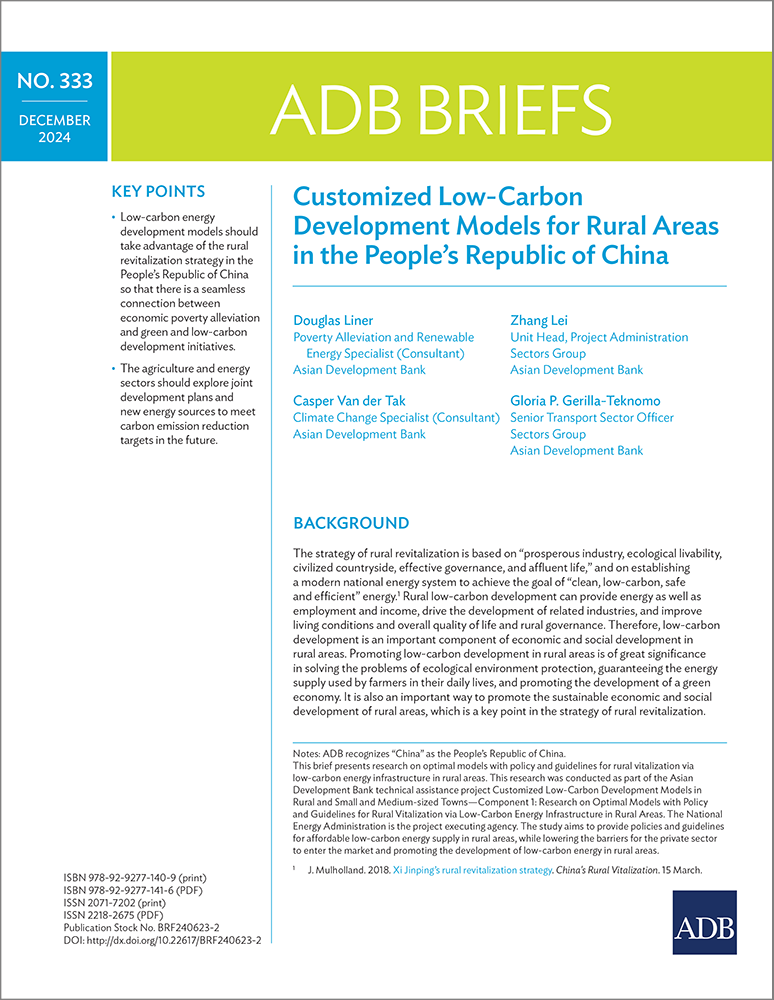
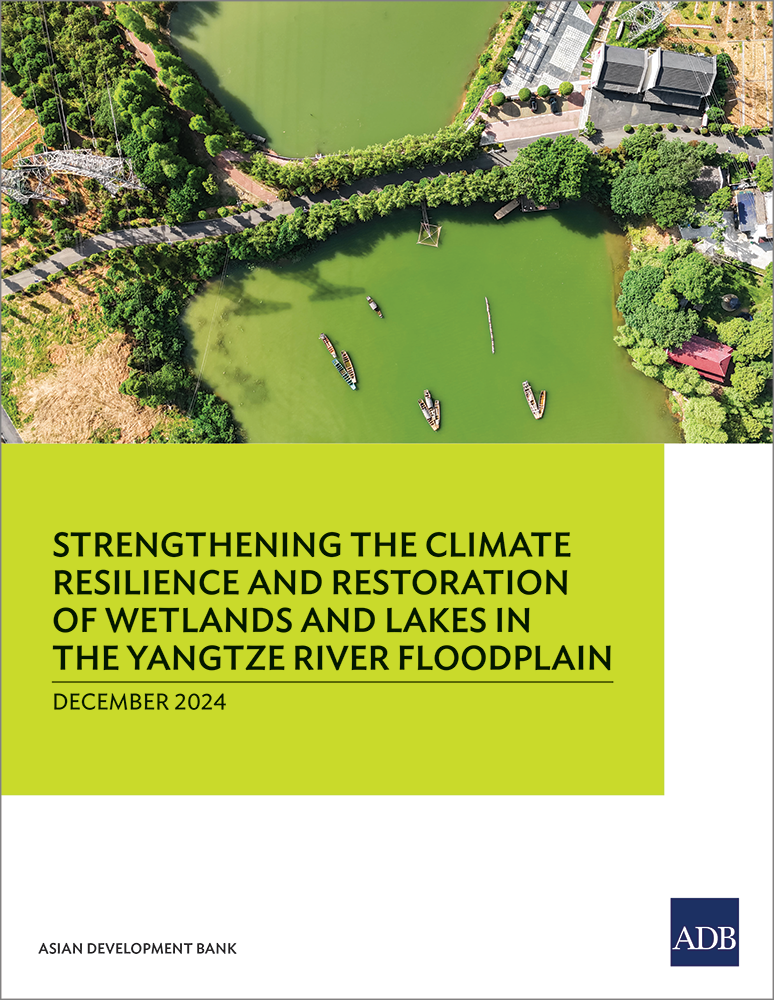

The Asian Development Bank is investing over $3.6 billion in projects like the South Dongting Lake restoration. This ambitious project aims to revitalize one of PRC’s most important wetlands, benefiting local communities and global biodiversity. By improving water quality, restoring habitats, and promoting sustainable practices, we can ensure a healthier planet for future generations.
Au Shion Yee, Principal Water Specialist, Asian Development Bank
By next year, we will be investing more than $3.6 billion. And South Dongting Lake project through the investment in the wetland improvements, migratory bird habitat improvements, water quality improvements… We can see that this project is really bringing and will continue to bring real benefits to the local communities.
This is the South Dongting Lake. It spans over 168,000 hectares and is one of (the People’s Republic of) China’s most vital wetlands. Hundreds of species, including endangered migratory birds call this area home. It is also crucial in climate change mitigation and adaptation. However, the lake and its surrounding wetlands have been under increasing pressure. Urban expansion, invasive species, unsustainable agricultural practices, and climate change have led to significant ecological degradation and biodiversity loss.
In response, the Asian Development Bank, in partnership with the Yuanjiang Municipal government, the Hunan Provincial government, the French Development Agency and other partners have launched an ambitious project to further restore and sustainably manage the South Dongting Lake wetlands.
Tieshan Song, Vice Mayor, Yuanjiang Government
We have been actively promoting both preparation and implementation of this project with a focus on the critical issue of South Dongting Lake wetland. We also aim to leverage the ADB project to elevate the restoration of the Dongting Lake wetland system environmental protection and rare species conservation.
Au Shion Yee, Principal Water Specialist, Asian Development Bank
This is one of the first projects that is linked to ADB’s Regional Flyway Initiative, which connects a number of very, significant bird habitat and wetland areas from the northern hemisphere, from northern Siberia down to Australia. So this project is part of a broader, global effort where we can have win-win outcomes, in terms of green development for the local fishermen community transitioning to green economy as well as, ecological benefits for global protected bird species.
The goal is to restore almost 12,000 hectares of degraded wetland, improve water connectivity, and manage invasive species.
Jianzhi Li, Deputy Secretary-General of Hunan Wildlife Conservation Association, and President of Yuanjiang Environmental Protection Volunteer Association
Now, the environment is improving, we expect to see an increase in visitors which will stimulate the local economy, raising incomes and bringing numerous benefits to Yuanjiang City and the South Dongting Lake area.
South Dongting Lake is gradually reclaiming its role as a vital ecosystem, thanks to the focused efforts in restoration and sustainable livelihoods, so that people and nature thrive together.

BEIJING, PEOPLE’S REPUBLIC OF CHINA (5 December 2024) – The Asian Development Bank (ADB) and the People’s Republic of China’s National Development and Reform Commission (NDRC), with support from the ADB-PRC Regional Knowledge Sharing Initiative (RKSI) and other partners, co-hosted the 10th annual eco-compensation conference in Miyun, PRC, from 25–27 November.
ADB East Asia Director General Muhammad Ehsan Khan and NDRC Vice Secretary General Xiao Weiming opened the conference, while AFNR Senior Director Qingfeng Zhang delivered a keynote presentation, reflecting on achievements from 15 years of ADB-NDRC collaboration, of continuously refining and improving the eco compensation mechanism as a means of financing ecological restoration work in vital ecosystems including the Yangtze and Yellow River basins.
This year’s conference, a regional flagship event led by ADB’s East Asia Regional Department and the Agriculture, Food, Nature and Rural Development Sector Group (AFNR), focused on market-based and user-pays mechanisms, and legal frameworks for eco-compensation and Payments for Ecosystem Services (PES) schemes. Importantly, the conference served as the international launch of the PRC’s National Ecological Protection Regulations, a pioneering effort at standardizing a mechanism of payment for ecosystem services.

“This conference provides a vital platform for knowledge sharing and collaboration on critical issues related to environmental protection and sustainable financing,” said ADB Director General for East Asia Department Muhammad Ehsan Khan. “ADB is committed to supporting its member countries in developing and implementing effective eco-compensation and PES mechanisms to achieve their environmental and development goals. Eco-compensation mechanisms are not just about protecting our environment; they are about unlocking the economic potential of nature. By investing in natural capital, we can drive sustainable development and create a greener, more prosperous future for all.”

Around 300 participants from government agencies, national and international research institutes, academia, and the private sector attended the event, including delegations from 13 countries. The conference helped strengthen collaboration between the PRC and other developing member countries through sharing of knowledge on sustainable conservation finance strategies.
On the first day of the conference, participants embarked on a field visit to observe various watershed conservation programs in Miyun. This excursion included stops at the Miyun Reservoir Exhibition Museum and Dam, the Chinese Bee Protected Area in Fengjiayu, the Jixing Agricultural Park built on reclaimed wildlands, and the Earth System Simulation Facility. These site visits provided firsthand insights into the practical implementation and diverse applications of modern and sustainable agriculture, engineering and science.

Conference sessions discussed a range of topics including the PRC’s experience in implementing eco-compensation programs, which have contributed towards improving environmental quality and enhancing sustainable agriculture practices, while also enhancing ecotourism activities and promoting nature positive investments. The eco-compensation schemes also serve as a mechanism to channel financial flows from carbon or biodiversity credit schemes.
The conference also facilitated the sharing of experiences and best practices from other regions, including the Greater Mekong Subregion, Lao PDR, and India, with presentations highlighting successful initiatives like the Khao Yai National Park in Thailand. Discussions highlighted the importance of identifying additional avenues for dissemination of PRC’s rich experiences in implementing eco-compensation mechanisms with other DMCs, including through the RKSI and other knowledge sharing platforms.
ADB is committed to achieving a prosperous, inclusive, resilient, and sustainable Asia and the Pacific while sustaining its efforts to eradicate extreme poverty. Established in 1966, it is owned by 69 members—49 from the region.


In an increasingly interconnected world, regional public goods (RPGs) provide a compelling framework for countries to cooperate for sustainable development. RPGs include a wide array of assets and services to promote economic growth, social welfare, and environmental sustainability.
Public goods can be placed in three main categories: economic public goods, social public goods, and environmental public goods.
Economic public goods are those that are directly related to economic growth and industrialization, such as infrastructure for transportation, communication, energy, and irrigation systems. Economic institutions, regulatory frameworks, and government macroeconomic policies can also be included.
Social public goods include legal systems, public health and epidemic prevention, social safety nets, public security, museums, public libraries, and parks.
Environmental public goods include environmental protection systems and policies, ecological restoration, renewable energy development, and climate change mitigation and adaptation programs.
Education, scientific research, technology, innovation, and all kinds of knowledge are all linked to these public goods.
Developing countries share common interests and needs for public goods because they face similar problems at similar stages of development. Often, they have common goals and priorities for economic development, such as poverty relief, industrialization, increasing productivity, urbanization, and reduction of income disparities. Here, cooperation between developing countries may create important regional public goods for joint development.
For example, regional and international transportation as well as communication networks improve connectivity among countries, enlarge the market for all, and in turn, improve the efficiency of national infrastructure systems.
Regional trade and investment agreements facilitate economic development and cooperation of the countries involved in the treaty. The Regional Comprehensive Economic Partnership treaty is an example of how all parties involved can benefit through regional cooperation.
Meanwhile, regional public health systems and epidemic prevention mechanisms are key to minimizing the pandemic risks for people in the region and beyond.
Regional networks can also play an important role in natural disaster management and mitigation as well as cross-border environment protection and ecological preservation (one example would be ADB’s Regional Flyway Initiative).
The Paris Agreement is a global public good that aims to tackle the challenge of climate change. However, its benefits can truly be realized through regional cooperation. A specific area for regional collaboration is energy transition through which governments can utilize latest technologies to reduce carbon emissions.
Global public goods can also be promoted through regional cooperation on cyber security and Artificial Intelligence (AI).
The provision of global public goods requires coordination between regional and global institutions to facilitate project designs, financing, and technical assistance. This facilitation can be done through a regional mechanism or within an international framework.
Knowledge sharing is imperative for joint development. Particularly essential is knowledge of recent development practices and experience in all countries, including policies implemented, technologies applied, and business models used and the problems that arise when facing new conditions. People from diverse backgrounds will benefit immensely through such knowledge exchanges. Every developing country, regardless of its size and levels of productivity, can offer some good experiences or lessons for others to learn and benefit from. A useful example is the influence of Bangladesh’s microfinance model.
The PRC is still a developing country, in terms of both gross national income per capita and industrial productivity. However, as a large economy, the PRC has a special responsibility to contribute to regional development.
Four important initiatives for economic development of the region deserve mention.
The first pertains to regional connectivity infrastructure (road, railway, ports, airports and telecommunications), which the PRC has facilitated. Better connectivity means greater market access and higher productivity, particularly for inland countries. The PRC-Europe rail route has greatly stabilized global supply chains in the wake of conflict disrupting vital shipping lanes in the Red Sea.
The second involves industrial development facilities, such as industrial parks. In recent years, the PRC has engaged in developing “two parks in two countries” mechanisms with Indonesia, Malaysia, Thailand, and Viet Nam, which provide mutual common goods for the companies from “the other country.”
The third initiative is the technology and business model for energy transition. Knowledge sharing in this regard will not only contribute to the battle against climate change, but also provide new ways to help countries increase their capacity for energy generation for the next stage of development.
The fourth initiative is cross-border environment protection and ecological system preservation for sustainable development. It is in the common interest of all countries in our region and beyond to prevent damage of our ecological systems.
In principle, all public goods are good and beneficial for everyone, one way or another. However, for countries at different stages of development, their priorities may be different.
For low-income countries, the most urgent need is more economic public goods related to their industrialization and economic structural upgrade, such as physical infrastructure and industrial facilities. Economic growth will enable these countries to finance their social and environmental projects through their own revenues and participate effectively in the provision of regional and global public goods.
Countries with higher incomes and productivity can help provide social and environmental public goods, such as on ecological restoration and climate change.
Financial resources from donor countries should be directed toward economic public goods, rather social and environmental projects in low-income developing countries. This will prevent developing countries from becoming reliant on international aid for long periods and instead, encourage them to develop their own financial strength to pay for social and environmental goods. “Infrastructure deficits” in developing countries should be interpreted as being part of broader deficits of economic public goods.
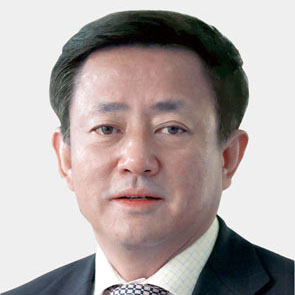
Director, National Economic Research Institute
© 2026 Regional Knowledge Sharing Initiative. The views expressed on this website are those of the authors and presenters and do not necessarily reflect the views and policies of the Asian Development Bank (ADB), its Board of Governors, or the governments they represent. ADB does not guarantee the accuracy of the data in any documents and materials posted on this website and accepts no responsibility for any consequence of their use. By making any designation of or reference to a particular territory or geographic area, or by using the term “country” in any documents posted on this website, ADB does not intend to make any judgments as to the legal or other status of any territory or area.
